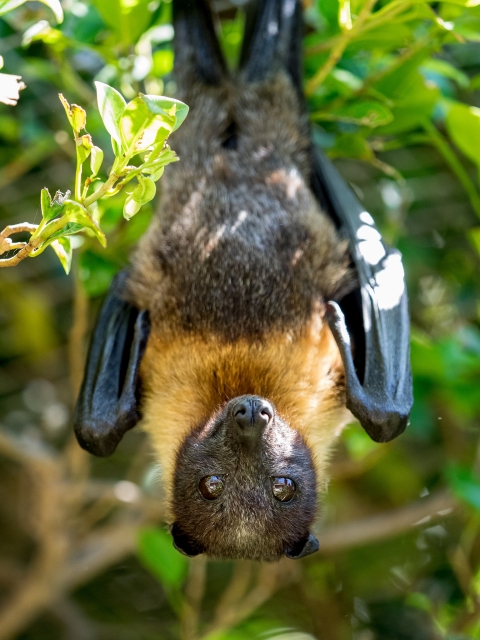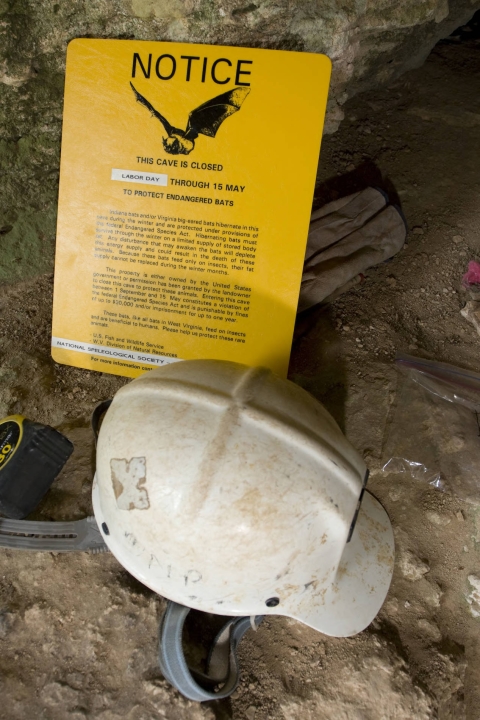The International Affairs MENTOR-Bat global conservation fellowship program focuses on the linkages between the health of bats, people, and the environment. Bats have co-evolved with various viral pathogens and become reservoir hosts to many pathogens without suffering from the effects of the disease. Disturbances to forest and cave habitats and bat roosts disrupt this delicate host-pathogen balance. As a result, bats shed the virus, potentially infecting other animals. Such disturbances may also change the bat hosts’ ranging patterns, increasing the level of contact with humans. Broadly, the greater the human disturbance of bats and their habitat, the greater the risk of zoonotic disease spillover to humans.
The MENTOR-Bat program aims to promote healthy environments where bats and humans coexist with reduced risk of disease transmission.
We co-design the MENTOR programs with the lead recipient organization and establish transdisciplinary teams of early-career conservation leaders who collaborate on addressing threats to wildlife. Through rigorous academic and field-based training, long-term mentoring, experiential learning, and project design and implementation, MENTOR-Bat aims to develop a team of 12 international MENTOR-Bat Fellows with representation from Africa, Asia, and Latin America.
Proposal Requirements
The proposed MENTOR-Bat program should address the relationships between bats, people, and environmental health that impact the potential for spillover and pandemic interventions, such as:
- The influence of habitat disturbance on the stress and health of bats and the impact this may have on increasing potential zoonotic disease spillover.
- The relationship between the health status of bats and the degree to which they shed viruses and thus pose a zoonotic disease risk.
- The role that the consumption and trade of bats plays in the risk of zoonotic disease transmission through direct human contact.
- The importance of public attitudes and messaging towards bats in influencing bat persecution, human-bat contact, and opportunities for zoonotic disease transmission.
- The impact of education and outreach regarding safer practices and coexistence initiatives on the nature of human-bat interactions and zoonotic disease transmission risk.
- How understanding of ecosystem services and economic value provided by bats influences habitat management policy and contributes to public perception of bats.
The anticipated funding available is $1,000,000 USD. This funding opportunity will solicit a single award with an expected period of performance of two to three years and a range of $300,000 to $500,000 USD/per year.
For additional information about the MENTOR-Bat Notice of Funding Opportunity, please read the Frequently Asked Questions.
Eligibility
Priority will be given to projects that are based on sound, realistic, and evidence-based designs. Applicants should express an openness to work with the U.S. Fish and Wildlife Service to further co-design MENTOR-Bat and apply lessons learned from the MENTOR Model.
Applicants can be individuals; multi-national secretariats; foreign national and local government agencies; non-profit non-governmental organizations; for-profit organizations; public and private institutions of higher education; and U.S. territorial governments.
Process
See the NOFO for full details on the application requirements and process for applying. The NOFO should be read carefully to ensure an application meets all eligibility requirements and is complete upon submission.
Electronically submitted applications may be submitted after July 25, 2022 until 11:59 PM EDT, September 9, 2022 preferably through GrantSolutions.gov (search for funding opportunity #F22AS00398), or alternatively through Grants.gov. Applicants who are unable to submit applications through those channels may seek a waiver.

